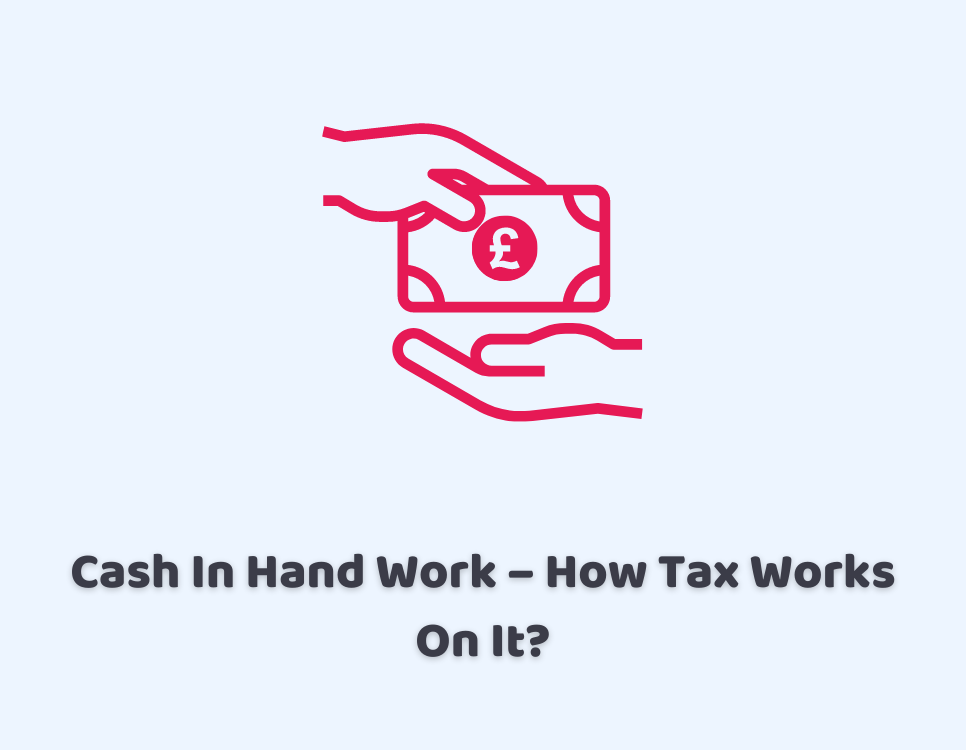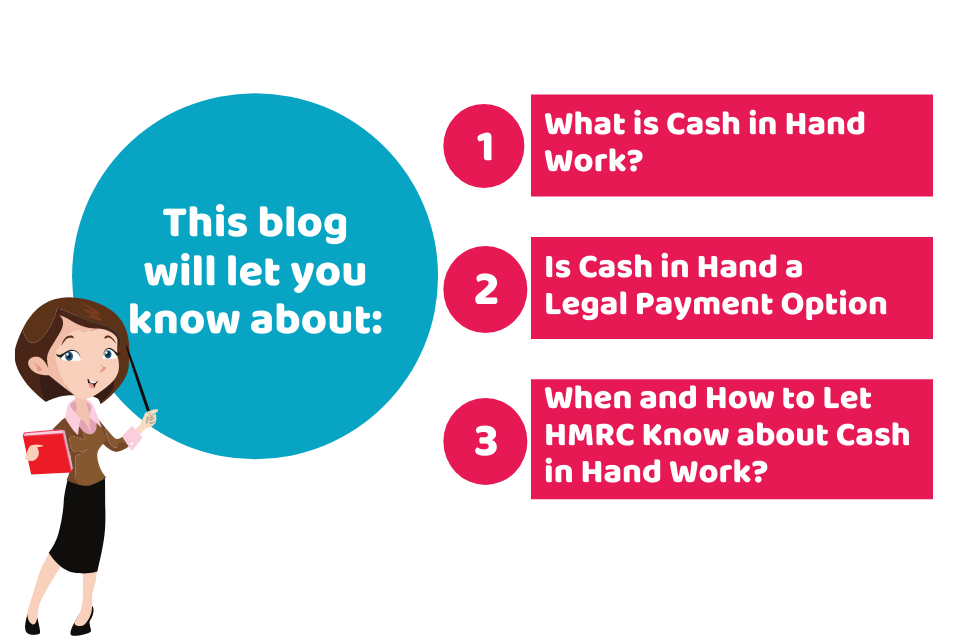
30/09/2021Business , Finance , Personal Tax
Are you accepting cash in hand work? If yes, then you should know how you’ll be taxed on it. The taxes will be based on your circumstances, for instance, whether you are a registered self-employed person, a student, or have a job.
This blog will explain how HM Revenue & Customs reviews cash in hand jobs and what you must do in most usual situations.
Are you having trouble registering as a self-employed person? We’ll get your self-employed business up and running at low cost and less time. So fill out this form right now to save time & money!

What is Cash In Hand Work?
In cash in hand jobs, an employer pays you in cash rather than adding you to payroll or putting your salary into your bank account. These jobs are expected in specific industries like cleaning, construction, or at certain events such as at Chrismas; shop assistants get cash in hand jobs.
Is Cash in Hand a Legal Payment Option?
Yes, it is legal. You can be paid by your employer in any form. But you must report your earnings to HM Revenue & Customs in most cases.
When you work as an employee, you will get a payslip that contains the tax code and your gross earnings. From there, your employer knows how much NICs and income tax to deduct. It is quite easy, and the employer never has to think about taxes and HMRC. No income tax and NICs are deducted when you are paid cash in hand.
When and How to Let HMRC Know about Cash in Hand Work?
You need to tell HMRC if you earn more than £1,000. Below it, you can take benefit from the trading income allowance. It allows taxpayers to make up to £1,000 during a tax year without informing HM Revenue & Customs about it. However, you must keep track of your earnings to prove that you are not earning more than the given threshold.
First, decide whether you are self-employed or you have casual earnings.
1) Declaring Cash in Hand If You’re Self Employed
Every year you are required to register and report to HM Revenue & Customs about your income. You have to do this in the section on self-employment. There you have to declare your business income & expenses. Then, pay tax according to it.
2) Declaring Casual Income to HMRC
Once you earn more than £1,000, you’ll have to report HMRC about it. To do this, you’ll have to register with HMRC by filling a Self Assessment form.
Whether you have casual income or are self-employed, once you are issued a UTR (Unique Taxpayer Reference) number, this means your registration is completed with HMRC. This number is essential to manage your taxes; therefore, keep hold of it.
Quick Sum Up
We hope, with the highlighted details, you understand better about cash in hand work. We will conclude our blog by saying that cash in hand payment option is not illegal. But not informing HMRC by both employee and employer about it depending on the amount is illegal. Under the rules of trading allowance, you can earn up to £1,000 without informing HMRC, but once you make more than the given threshold, you must register with HMRC.
We provide incredible accounting and taxation services that include professional support for self-employed individuals & casual earners! We will gather information from you and will register you to HMRC on your behalf and reduce all your business problems in no time! Contact us now!
Disclaimer: This blog contains general information about cash-in-hand work.

